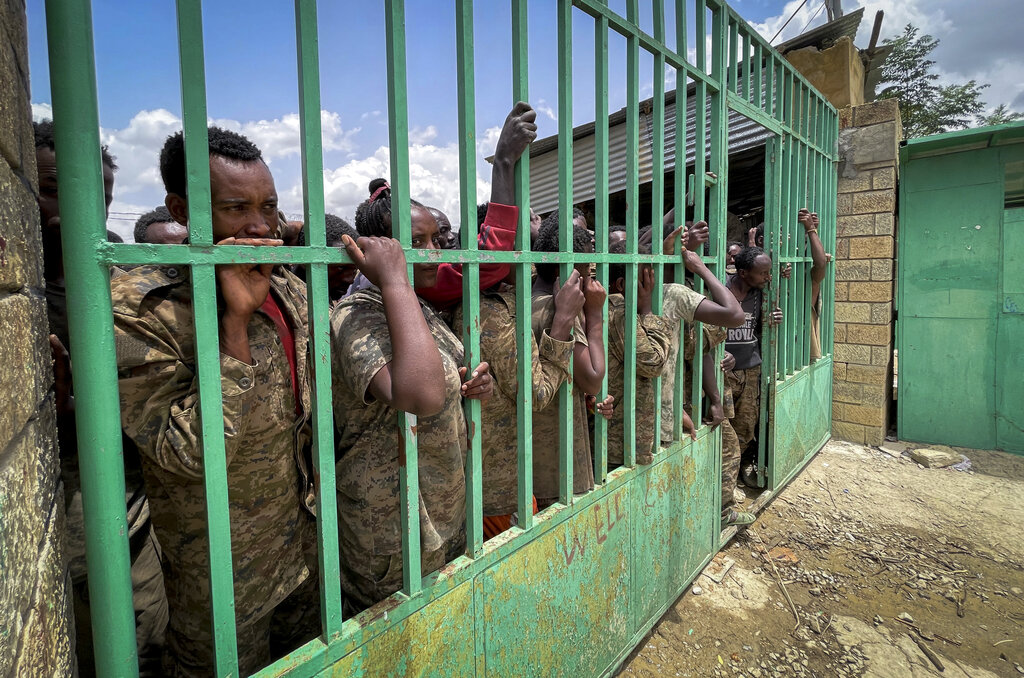ADF STAFF
Months after a peace deal was signed in Ethiopia, prisoners of war continue to languish behind bars. Some who have been released from detention facilities say they were being held in squalid conditions.
New reporting by Al Jazeera found that Tigrayan fighters and civilians are still imprisoned. Complicating matters is a policy adopted near the outbreak of war where the Ethiopian government rounded up thousands of ethnic Tigrayan Soldiers serving in the Ethiopian National Defense Force and detained them. Some are still unaccounted for.
“We haven’t been able to gather information on issues such as detention without charges and prison conditions being below human rights standards such as on food, hygiene, access to family or lawyers,” Fisseha Tekle, a Nairobi-based legal advisor at Amnesty International, told Al Jazeera. “We generally consider this aspect of the northern Ethiopia war an information black hole.”
One detention facility under heavy scrutiny is Awash Arba, a prison in the northeast Afar region of the country. Prisoners who have left the facility describe crowded, unsanitary conditions.
“There was no medical treatment, there were nutritional problems, the treatment of the center was terrible, we had up to 900 people in one room, and some people lost their lives,” one former Awash Arba prisoner told Voice of America’s Tigrinya service.
A peace agreement signed in November 2022 in Pretoria, South Africa, was supposed to end the hostilities and begin the process of reconciliation. The Tigrayan People’s Liberation Front (TPLF), the political party that controlled fighters in the north, surrendered most of its arms. Following the agreement, the Ethiopian government removed the TPLF from a list of terrorist groups, returned telecommunications service to the region, and ended a blockade of roads.
However, the fate of detained fighters and civilians has remained a thorny issue. An Associated Press report estimated that 17,000 ethnic Tigrayans were in the federal military at the outbreak of war and most were detained. Family members of Soldiers also faced reprisals.
“Family members of detainees are sometimes stripped of their jobs, kicked out of military housing and subjected to frozen bank accounts,” the Associated Press reported in April 2021.
During the war and since the end of hostilities, both sides have released prisoners. In April 2022, Tigrayan forces released more than 4,200 Ethiopian Army detainees. In 2023, the federal government released about 1,500 Tigrayan prisoners from a facility at Mierab Abaya and 2,000 prisoners at Gorbasa.
But family members of the missing and human rights groups say they are unable to get answers about those still unaccounted for.
Kjetil Tronvoll, a professor of peace and conflict studies at Oslo University and a Horn of Africa researcher, has tried to gather data and cited a “lack of transparency and access to information.”
“We know that about 16,000 [Ethiopian] troops hailing from Tigray were immediately detained at the outbreak of hostilities,” added Tronvoll. “But how many tens of thousands of civilian Tigrayans in Addis and elsewhere in the regions were unlawfully detained, is not known. How many were tortured and killed in detention is also not known.”

